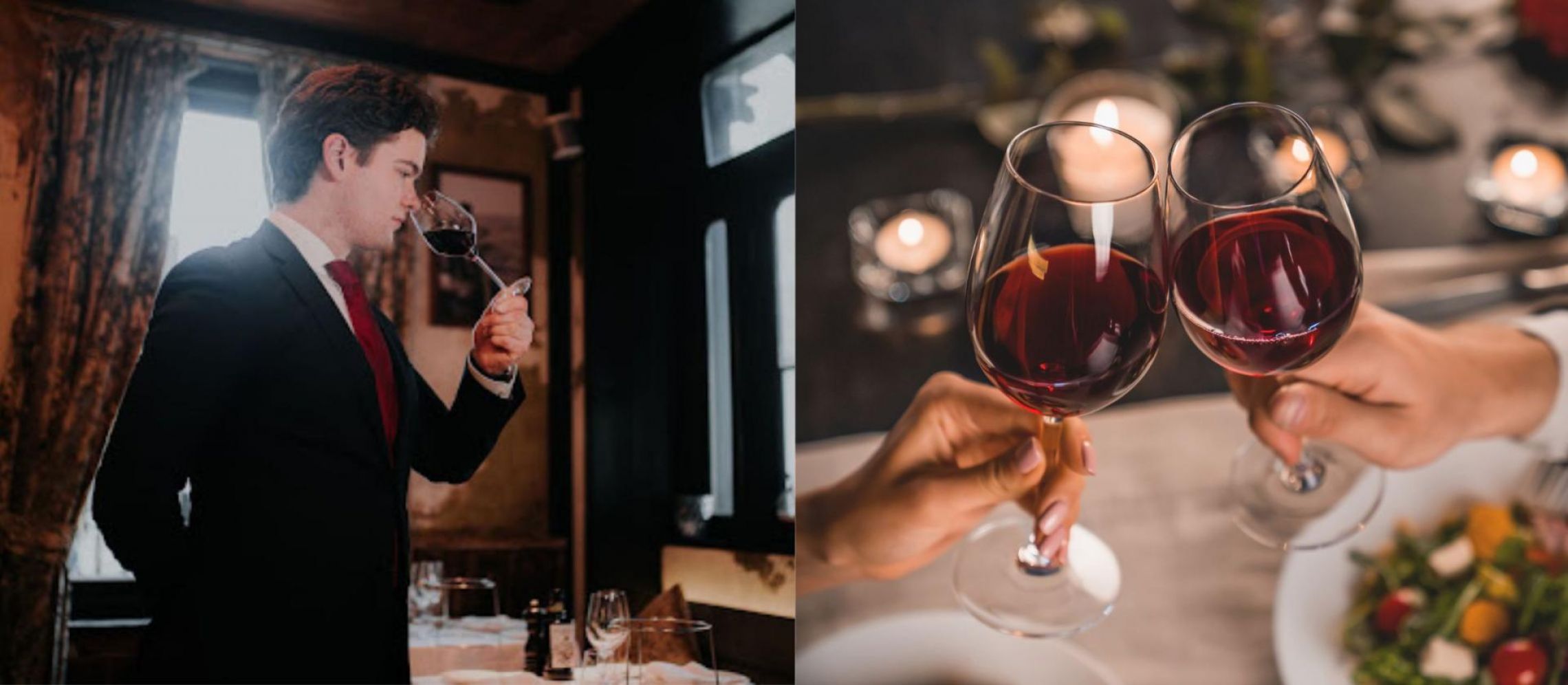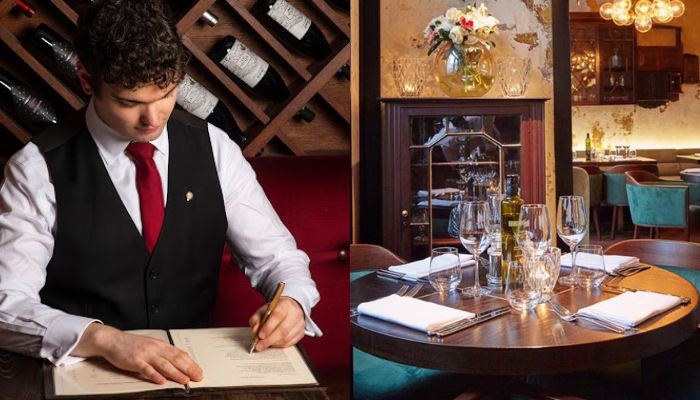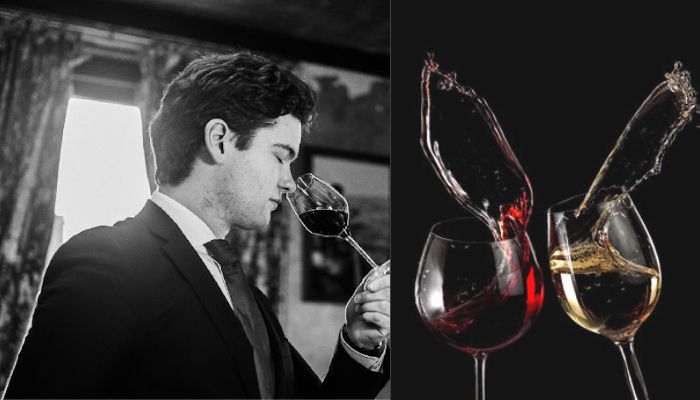Early Bird Deadline
30 November 2025
Judging
Date
23 & 24 March 2026
Winners Announcement
22 April 2026
30 November 2025
23 & 24 March 2026
22 April 2026

Goal-driven and long-run planner Lorenzo Beltrame has more than nine years of experience studying and working in wines. Currently, Lorenzo is working as the Head Sommelier at Santo Mare Restaurant, London. When asked Lorenzo, what is the best part of his job, Lorenzo replied, that the best part of his job is the instant gratification from the customers. He likes to explore new cultures and meet new people from different traditions, roots and opinions.
To know more about his journey as a sommelier, keep on reading.
Marking soon in the 10th year of studies and working in wines, I still see myself as a student. Goal-driven and long-run planner, in my free time, I like to explore new cultures and meet new people from different traditions, roots and opinions. Fan of Star Trek, I am passionate about space and physics, and I love to follow developments in this sector.
When I was young, I was fascinated by the chance to distinguish the single scents,
aromas, perfumes that a glass of wine could emit. I could not drink it, of course, but I was amazed by the knowledge of an old man, a Sommelier, that I met: with his narrative, he was able to bring you the imagination in the vineyard, in the region from where the wine was from. This druid-like figure inspired me to train myself to distinguish the different aromas, identify the single tastes, and then know the background of what was in that glass.
Finally, when I was 18 years old, I was allowed to apply to study in the course programmes developed by the Italian Association of Sommeliers, and I began my career there.
LinkedIn is a very effective way of keeping connected to other professionals and following their posts to have constant updates, as well as producers sharing their new releases and insights.
Of course, social media don't always show you just this: advertisements, other links and content sometimes may cover the news you could use; therefore, I also find vital the work of industry journalists, editors and in general.

Image: Lorenzo Beltrame
In my opinion, the Sommelier has to be able to guide the guests in their dining experience: we do not have to forget that our work is to welcome the customer, not to show off our knowledge.
Therefore I'd say our first skill is to be able to listen to the request: each guest will have a particular request, a preference, a budget (I consider this point very important), and an occasion to decide to open a bottle.
Every lunch or dinner is unique, and we have to adapt: the wines we store evolve themselves but are never the same; we must have the same approach at the table whether we are asked about a wine from a specific grape or region or we are given a free choice for them.
The second skill is somehow related to the first: to have a good approach with the other end of the chain, our suppliers. They are essential to keep a winelist working, especially with the current events affecting the imports.
A new staff member is more than welcome in our team: although we did not suffer a lack of staff and we could guarantee the same opening hours and numbers as ever, it sometimes happens to replace members of the staff.
In my department, I had the big opportunity to welcome both workers with a deep knowledge background and novices, people who learnt about this job with time.
Of course, these two cases have to follow different paths, but both start from the winelist, acknowledging the geography and the areas involved. Each worker is unique, so I don't tend to have a "scholastic" schedule, but I prefer to approach the trainee following his/her learning rhythm. In the front of the house, I show how I work with the first orders, and I supervise them after with the followings, getting to know the bottle while opening it.
After that, when waiters are taking care of the table, some time is spent discussing similar options through the menu so as to have a more immersive learning experience.

Image: Lorenzo Beltrame
The first step to growing wine sales, as well as sales in general, is to have a prepared staff and an efficient service: reducing service times allows the customer to order more drinks in the same time window potentially, or to leave and have more returning customers.
It is an investment for the business, but enrolling the Front of House crew into specialised courses (i.e. WSET) allows them to have better knowledge and approach to the table, collaborating with the Sommeliers on the floor. In the end, working as a team always helps, and a satisfied customer will likely spend more in the restaurant.
I believe the key to growing sales is customer satisfaction: once you gain the trust of the guest, sales can only go up.
Effective ways to grow profit are to reduce wastage and refine the guest experience:
I prefer a customer to come back 10 times, rather than only 1 or 2 times. In the long run, the guest will have eventually spent more than a single visit.
About the wastage, I would avoid too many choices in a by-the-glass section unless without specific technologies.
Though to improve my sensory skills, I like to taste food from everywhere in the world, and it is very rare I self-learn: I like to learn in the company of other colleagues/friends, and I am not planning to change this habit.
The best part of my job is the instant gratification from the customer: Hospitality gives you the chance to receive feedback immediately, and the thrill of guessing the right wine for the customer, followed by a positive response, is most satisfying.
My way of elevating the guest experience begins before the customer arrives: Having everything ready is a great advantage in offering a memorable time.
This is both with physical tools (ice buckets, stock, lists) and data. Accurate software to manage customers is essential to keep a record of preferences, anniversaries, and average budgets. Getting to know the customer is vital to give him a better experience on the next visit. Therefore it is essential to gather all the possible data.
The next step is to adapt: drinks are the best way to keep a customer busy, and we must be able to understand when it's time to "stall" to help the rest of the staff (i.e. an order taking too much time from the kitchen). Engagement with the customer also happens with personalised pairings: wine selected from a region, a producer, an "all white", "all bubbles", or "all red" pairings are a way to entertain each table offering a twist on standard options.
In my opinion, the biggest faux pas ordering the wine is related to not being able to separate a grape from the region: too many times, I've heard customers telling me they love Chablis and hate Chardonnay.
I do not consider myself a purist about drinking the wine: once the customer has paid, he owns the bottles. It happened to prepare and serve Rossini made with Cristal and Aperol spritz with Ruinart, and I don't consider it embarrassing how it is used as a luxury product.
[[relatedPurchasesItems-38]]
Without doubts, il Macellaio - Teatro Della Carne. Located in Soho, aside from the theatre hosting Les Miserables, it is a must-go for meat lovers.
Though currently, I am reading thrillers, my favourite book is a scientific book: Il respiro del vino (The breath of the wine), by Luigi Moio: through the pages, the author explains, in a scientific way, how we get to perceive the different aromas, with anecdotes on his life and experiences.
Choosing between a wide range of colleagues here in the UK is not easy at all, and I admire a lot of colleagues both for their professionalism and kindness.
The first names coming to my mind are Andrea Rinaldi: president of the Italian Sommelier Association, who dedicates his time to the most important activities: gathering professionals in a dedicated association and with him, I cannot forget to mention Federica Zanghirella, my second name for this question, devoted to teaching and preparing courses for new wine lovers.
My third name, maybe the most important in my little path, is the one of Danilo Zilli, to whom I will always be grateful: working with him, I had the chance to tap into his immense knowledge, and he'll always be an icon to me.
At the moment, I am perfecting my knowledge of Business Management at Anglia Ruskin University; this will give me the tools to open a business one day.
There could be thousands of episodes to tell, though one that I remember and like, is about a customer who wanted to bring his own bottle. It was an anniversary, and he was keeping at his house a Champagne, bought when he married his wife.
It was 50 years ago. The gentleman had no knowledge of wines; probably, he kept the bottle for years in a cabinet in his living room, waiting for a special moment to share the bottle with his beloved.
Unfortunately, the Champagne resulted in heavily oxidised and flat. It was their special dinner, and it was suddenly falling everything apart. 2 glasses of bubbles were immediately sent to the table in the house.
During the dinner, a special menu and pairings were set up for them on the best table, and their wine was part of it, in an intricate dialogue with the chef to balance extreme tastes.
In the end, a big celebration on the dessert turned that anniversary into a magical dinner, and the old couple enjoyed their moment together. I will never forget the happiness in their eyes.
Header Image: Lorenzo Beltrame
Make your wines stand out on the world stage. Enter the London Wine Competition by November 30 to secure Early Bird savings.